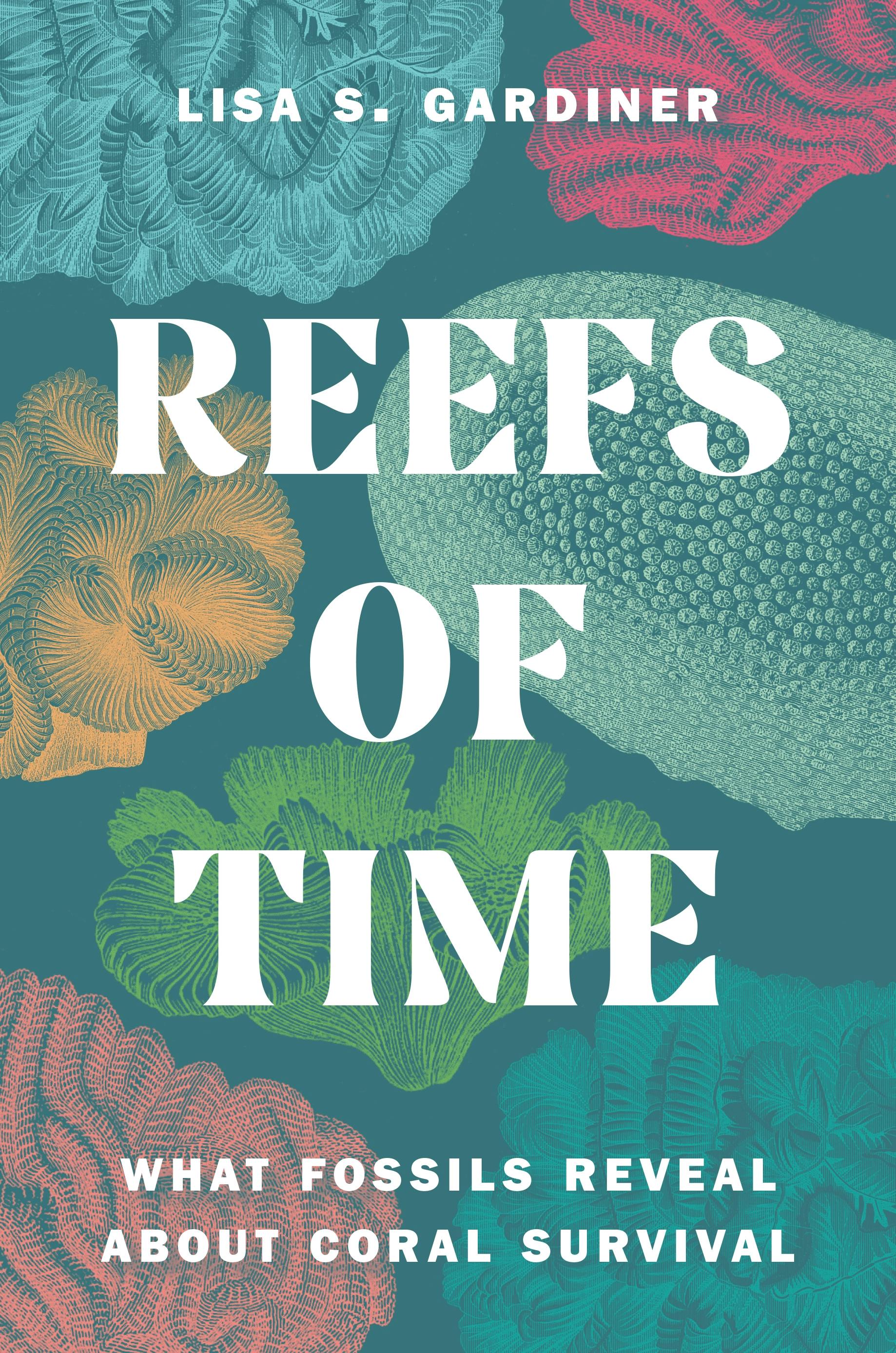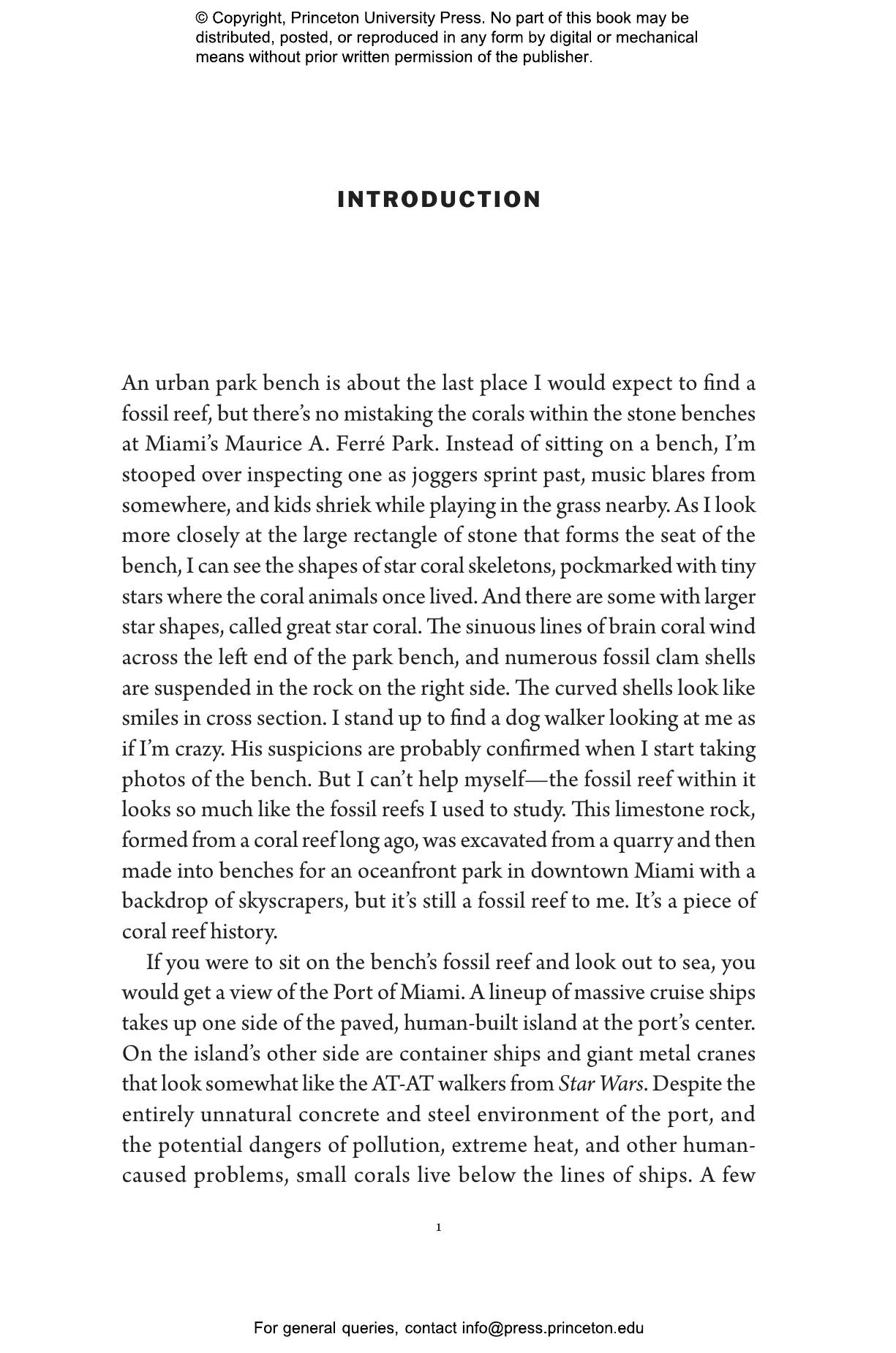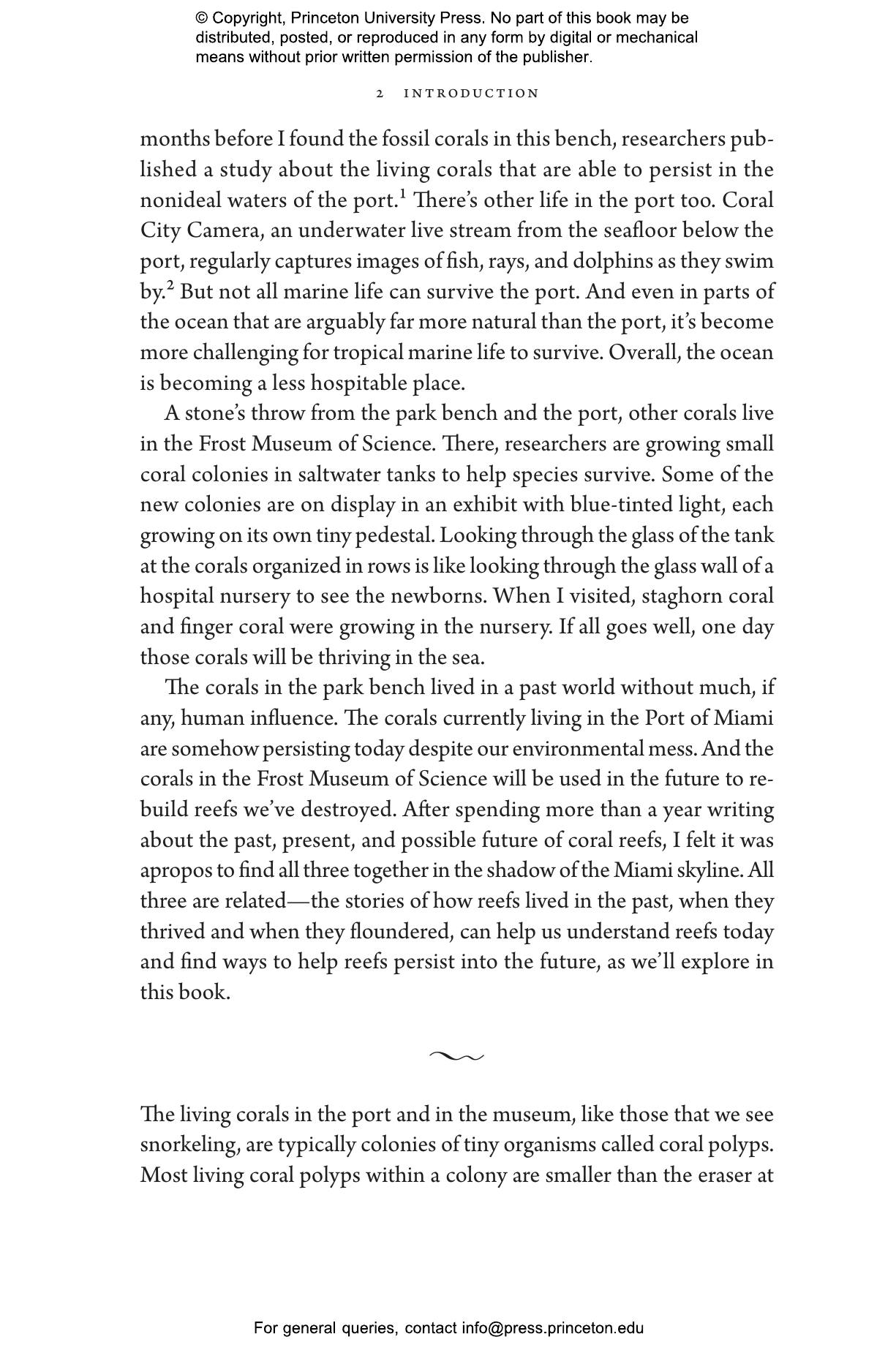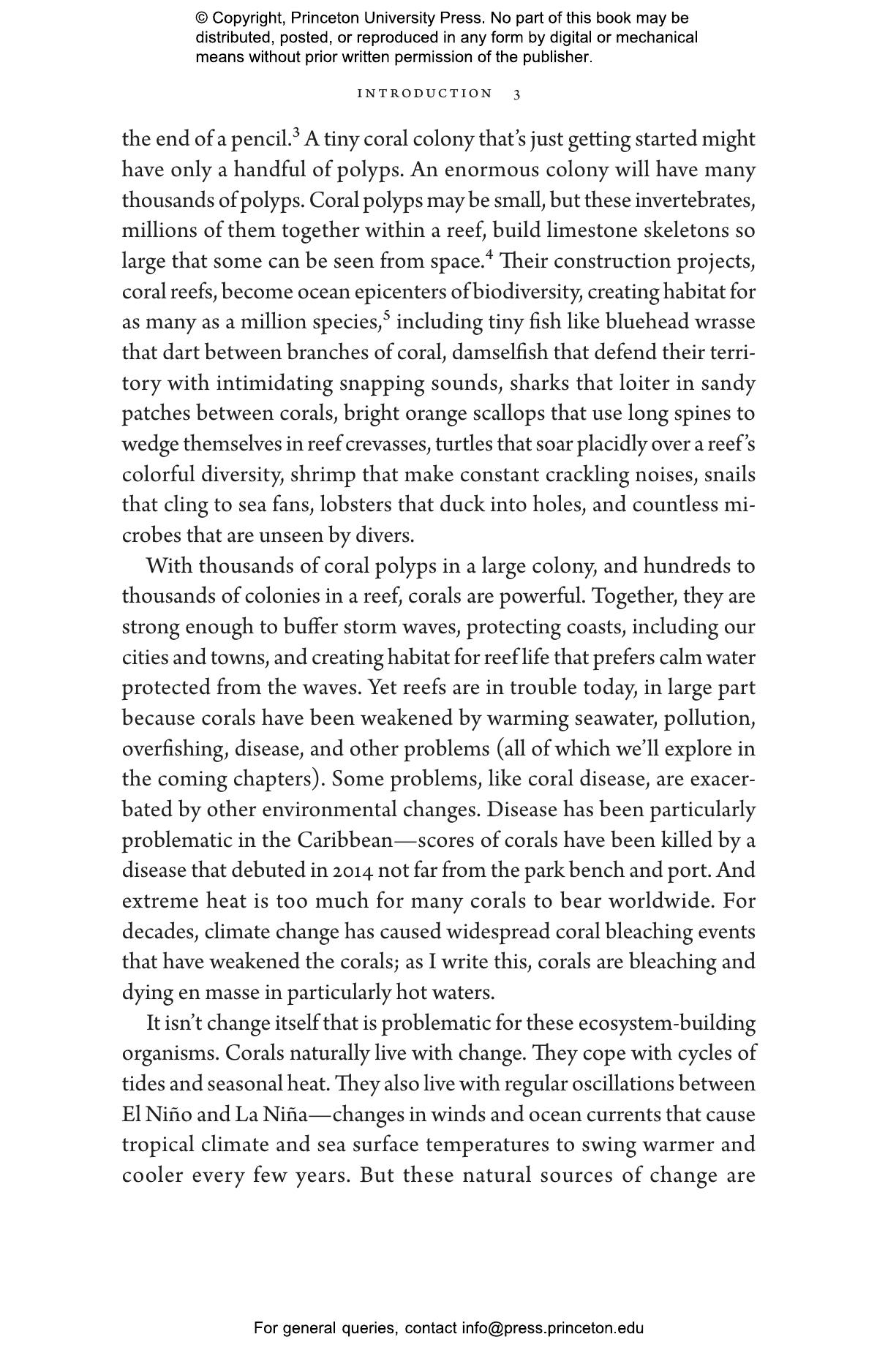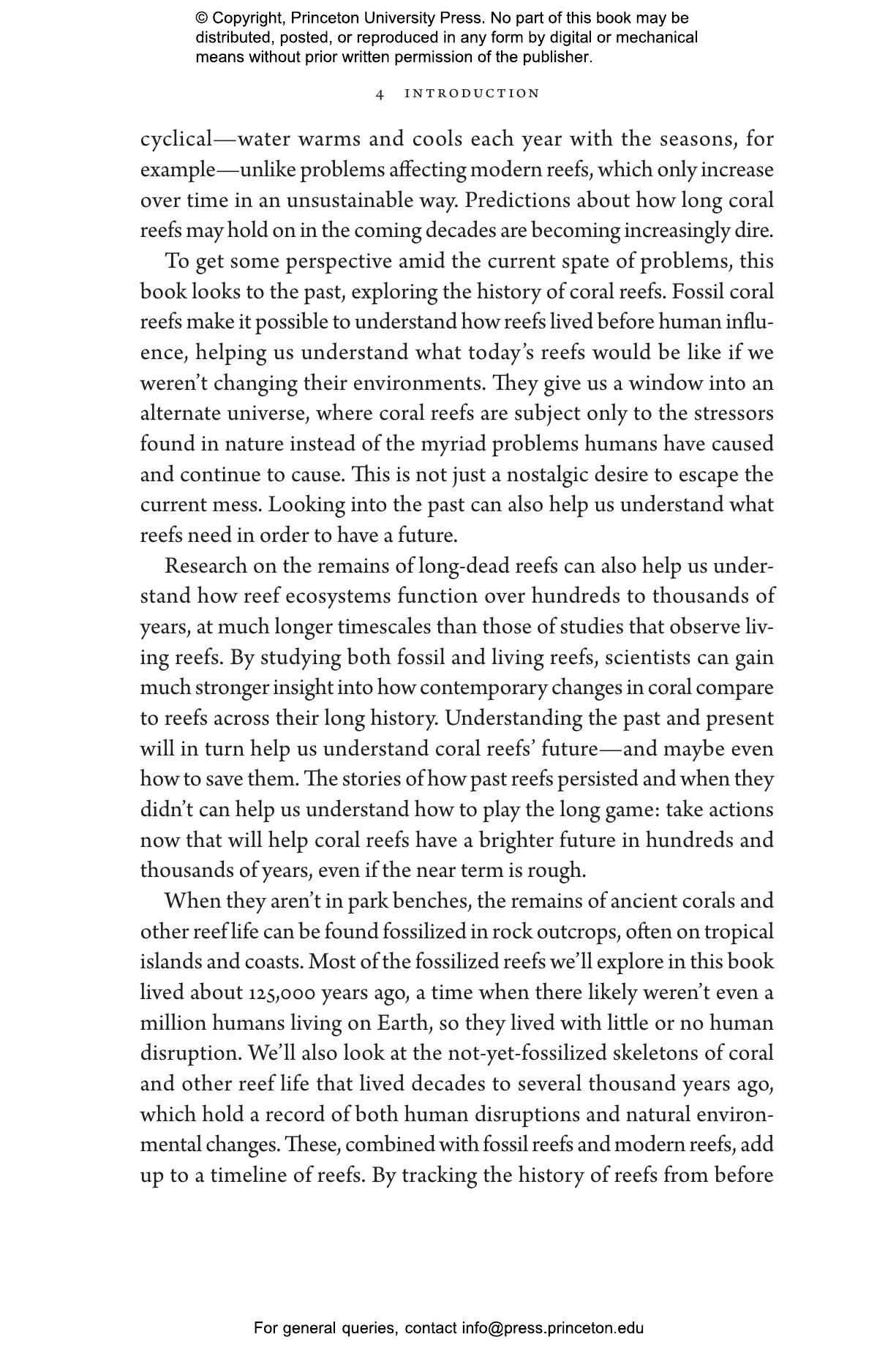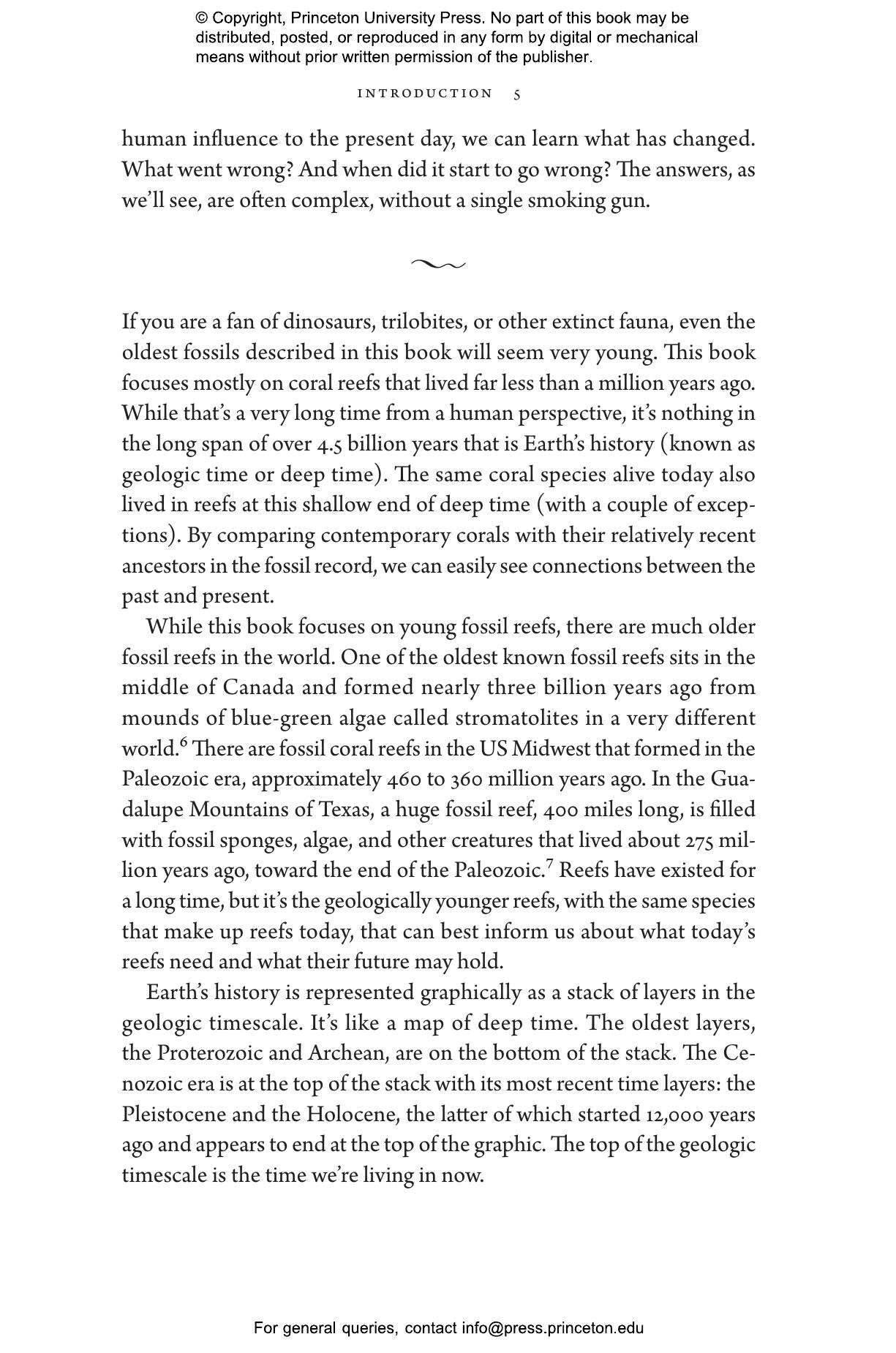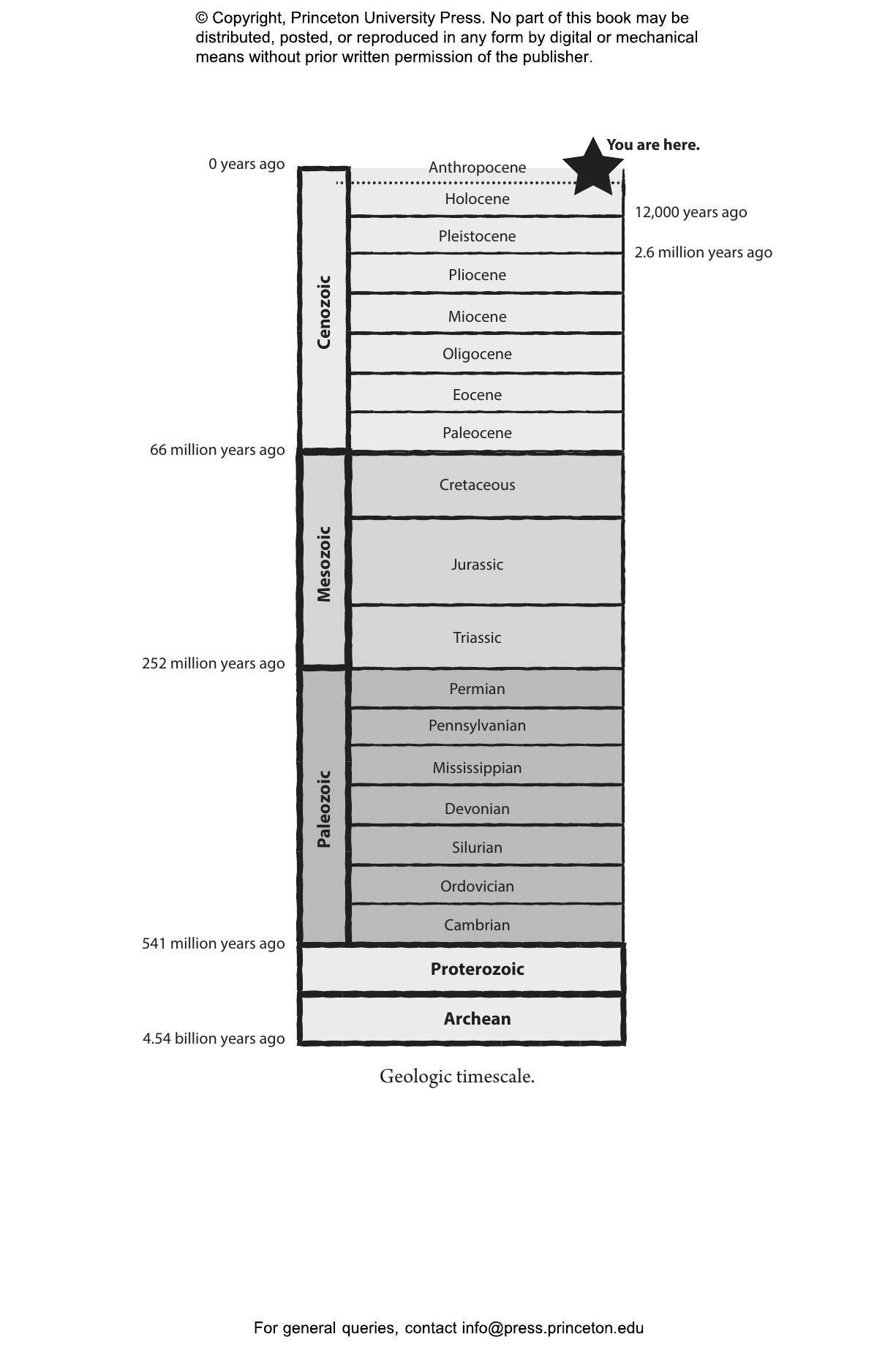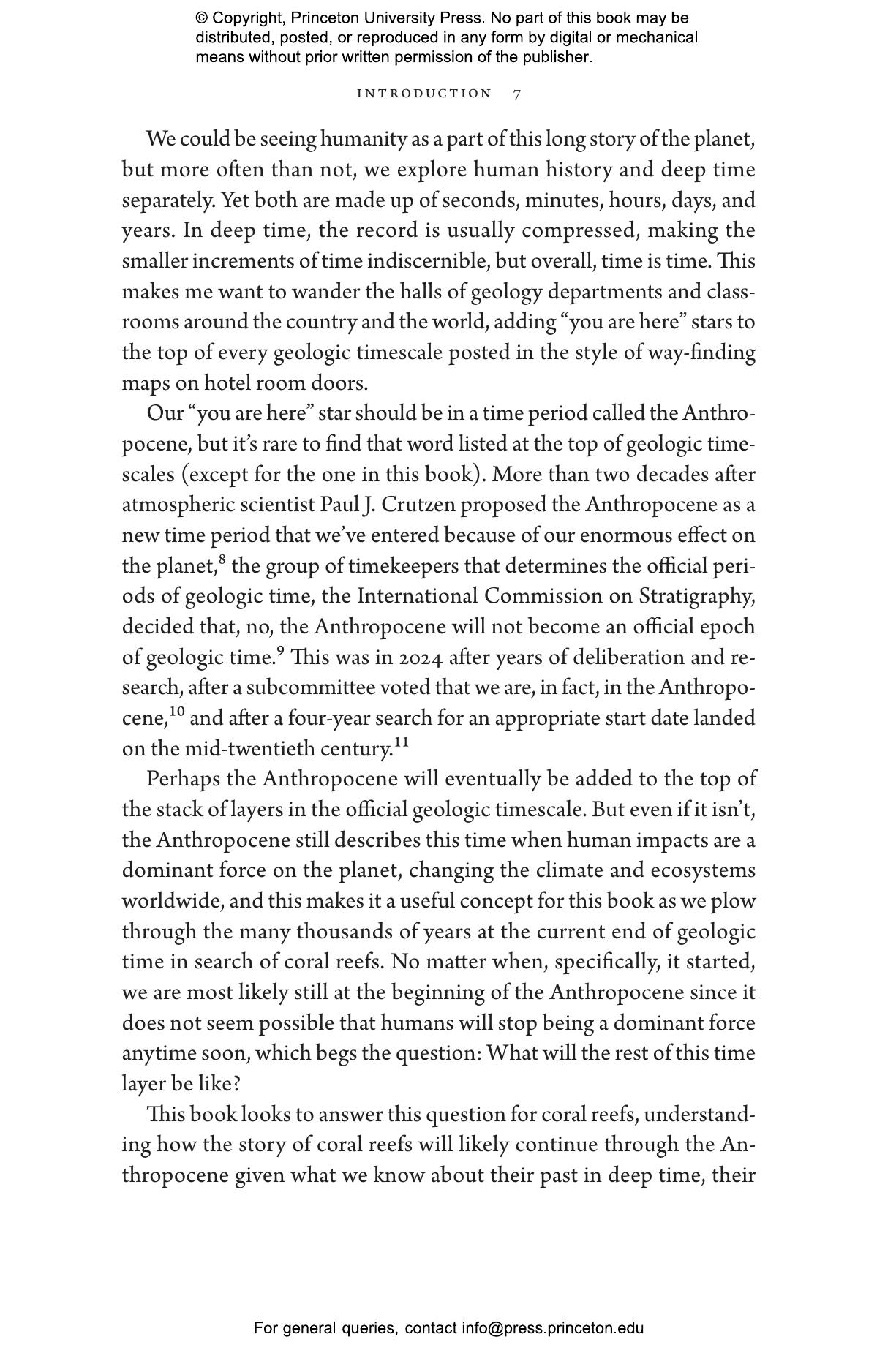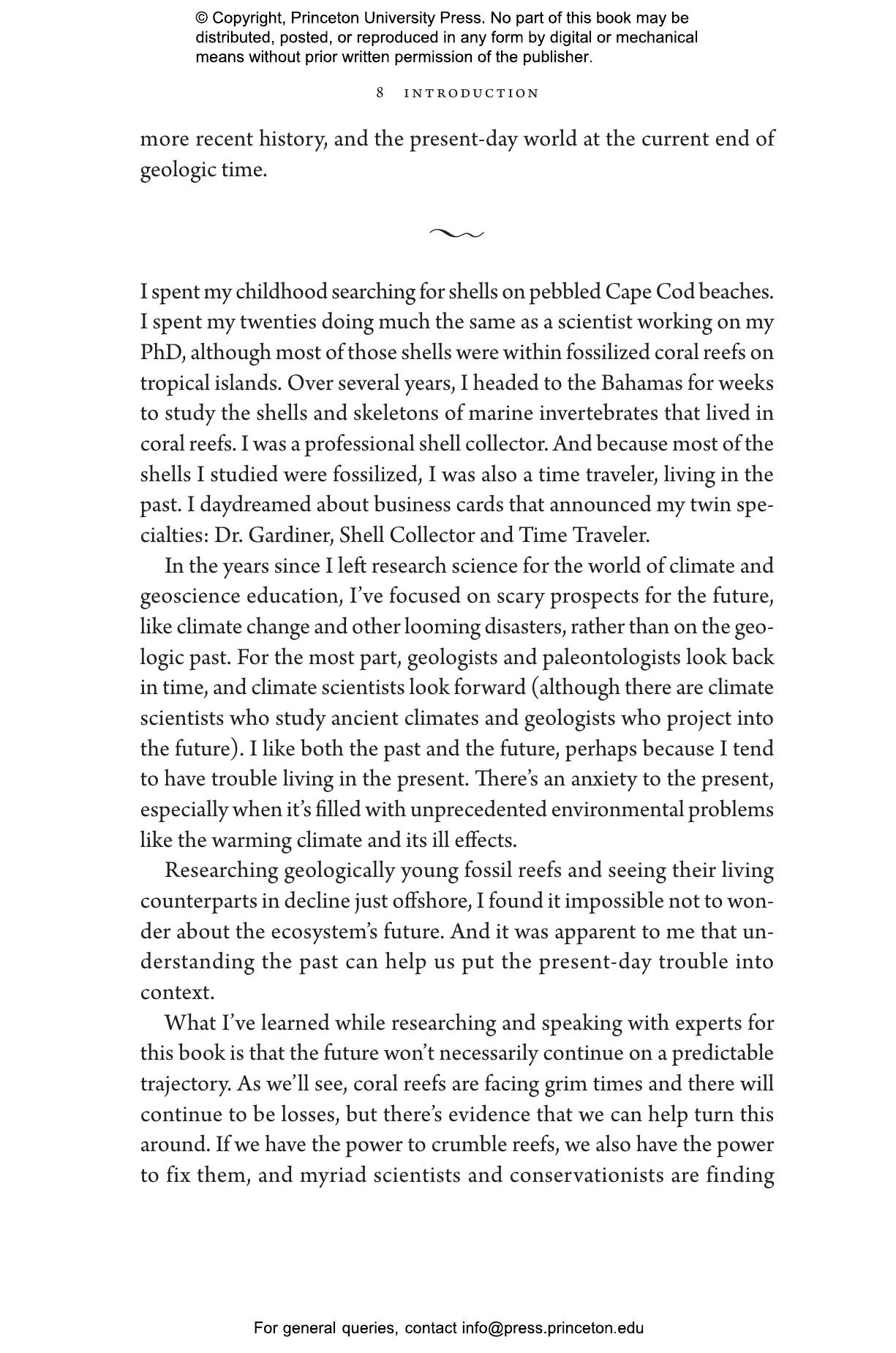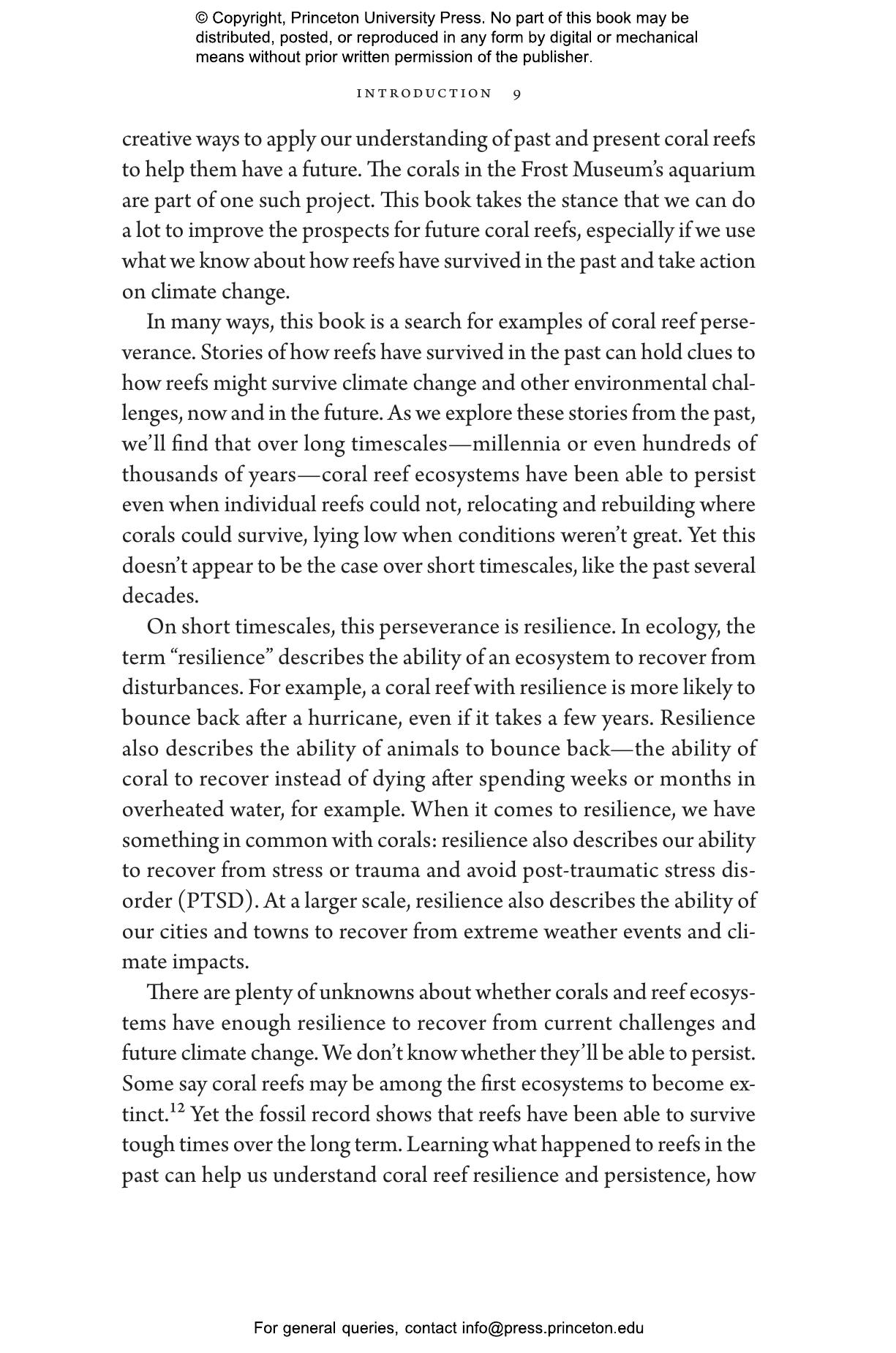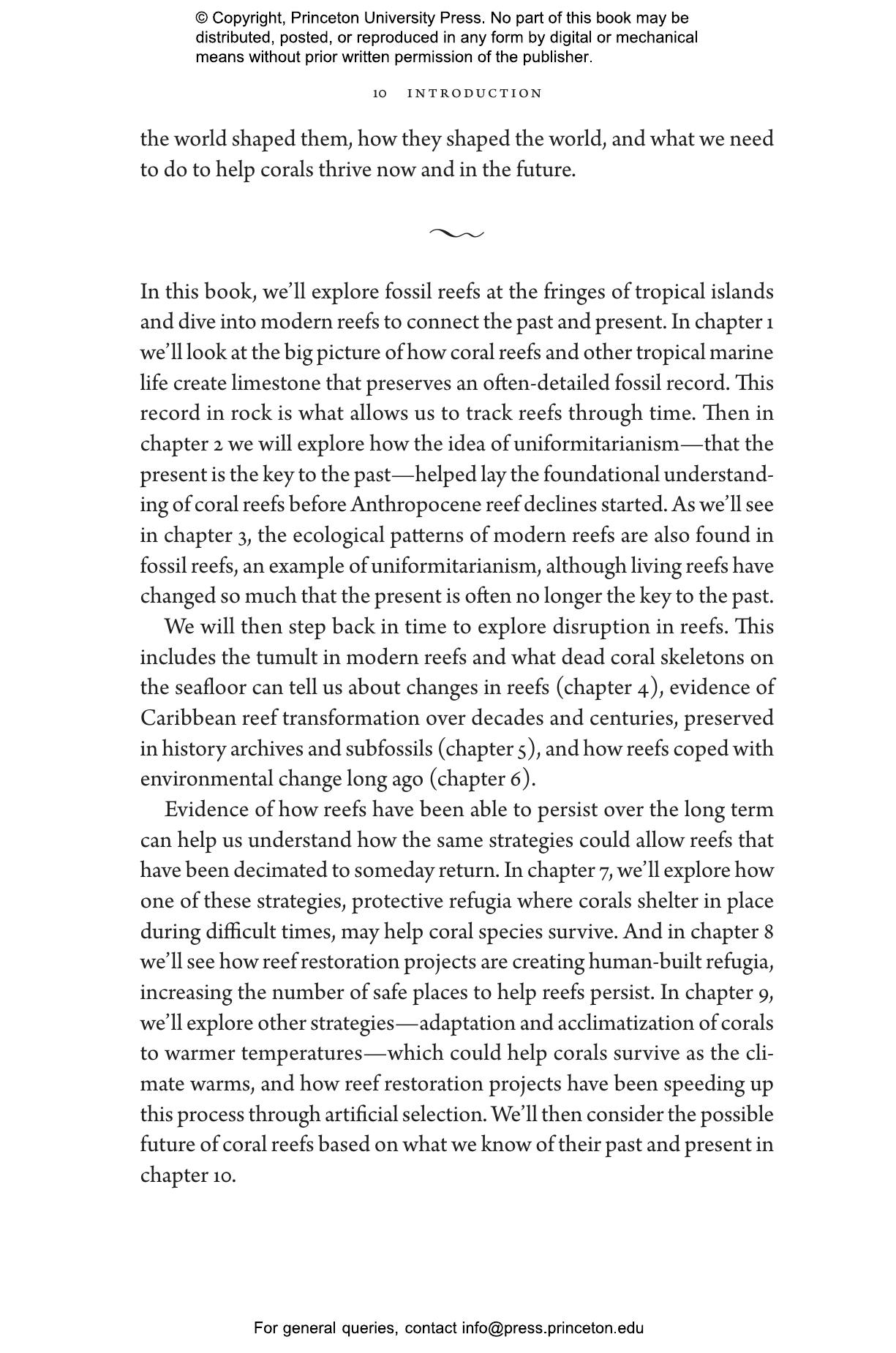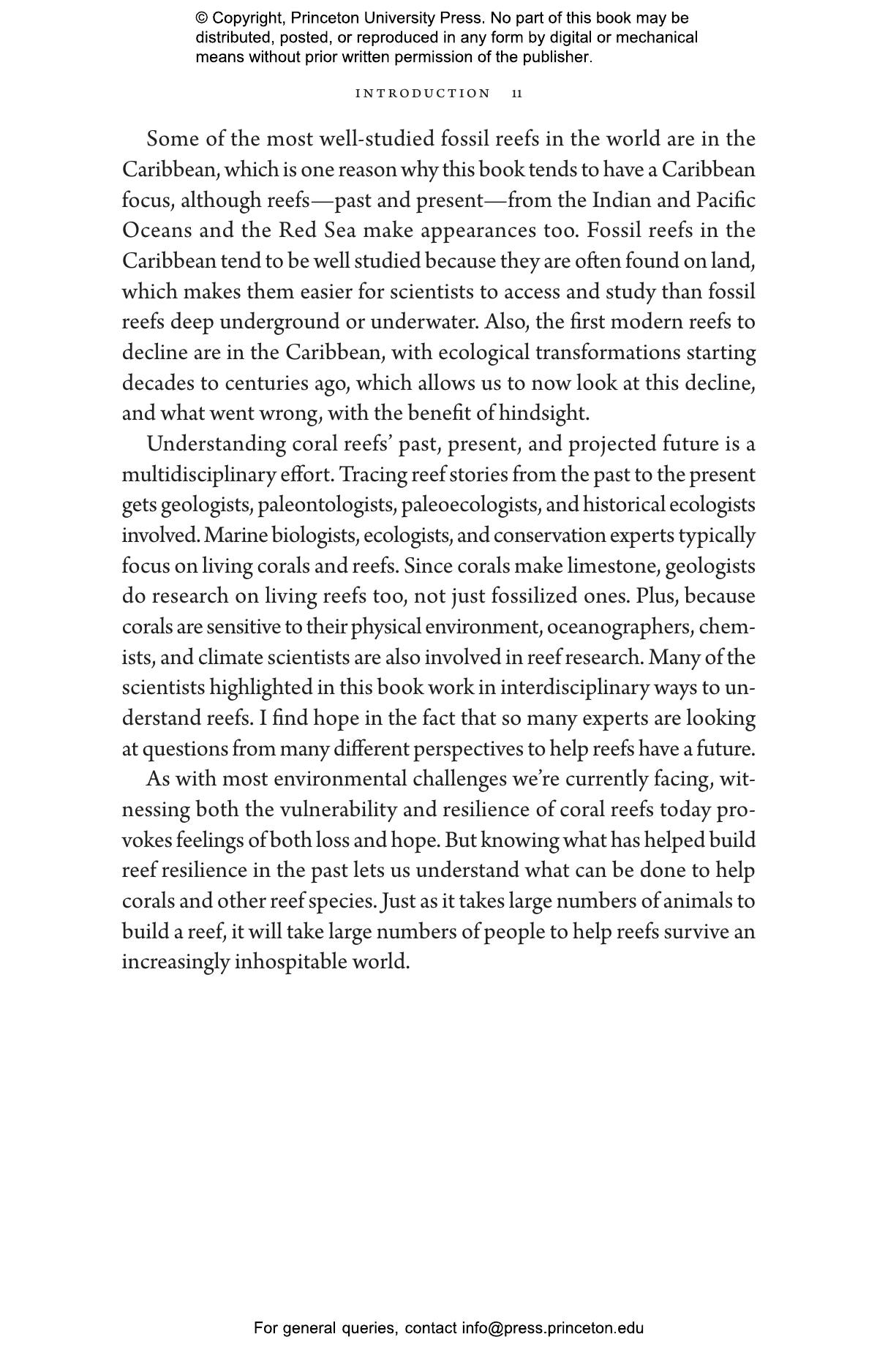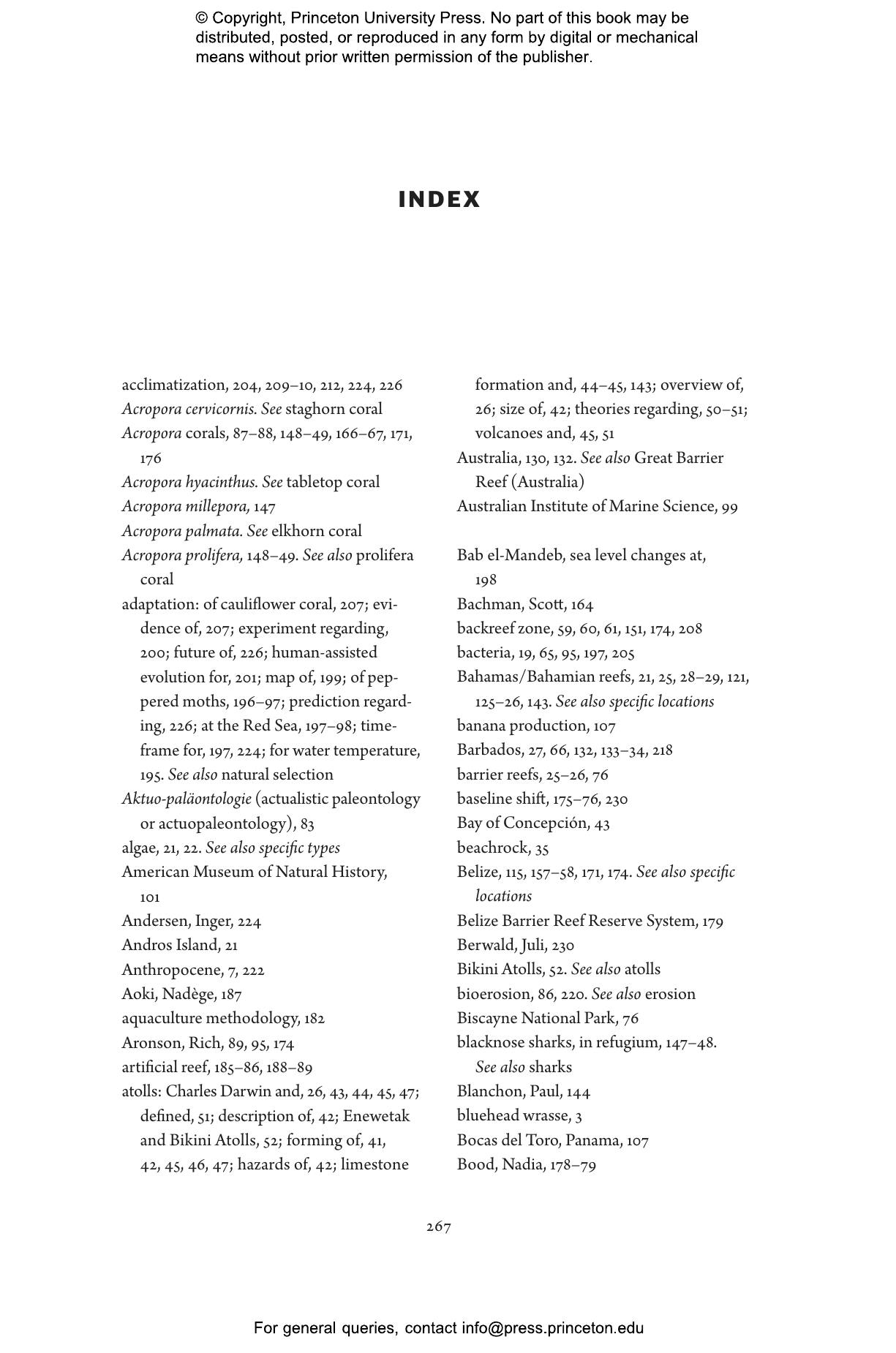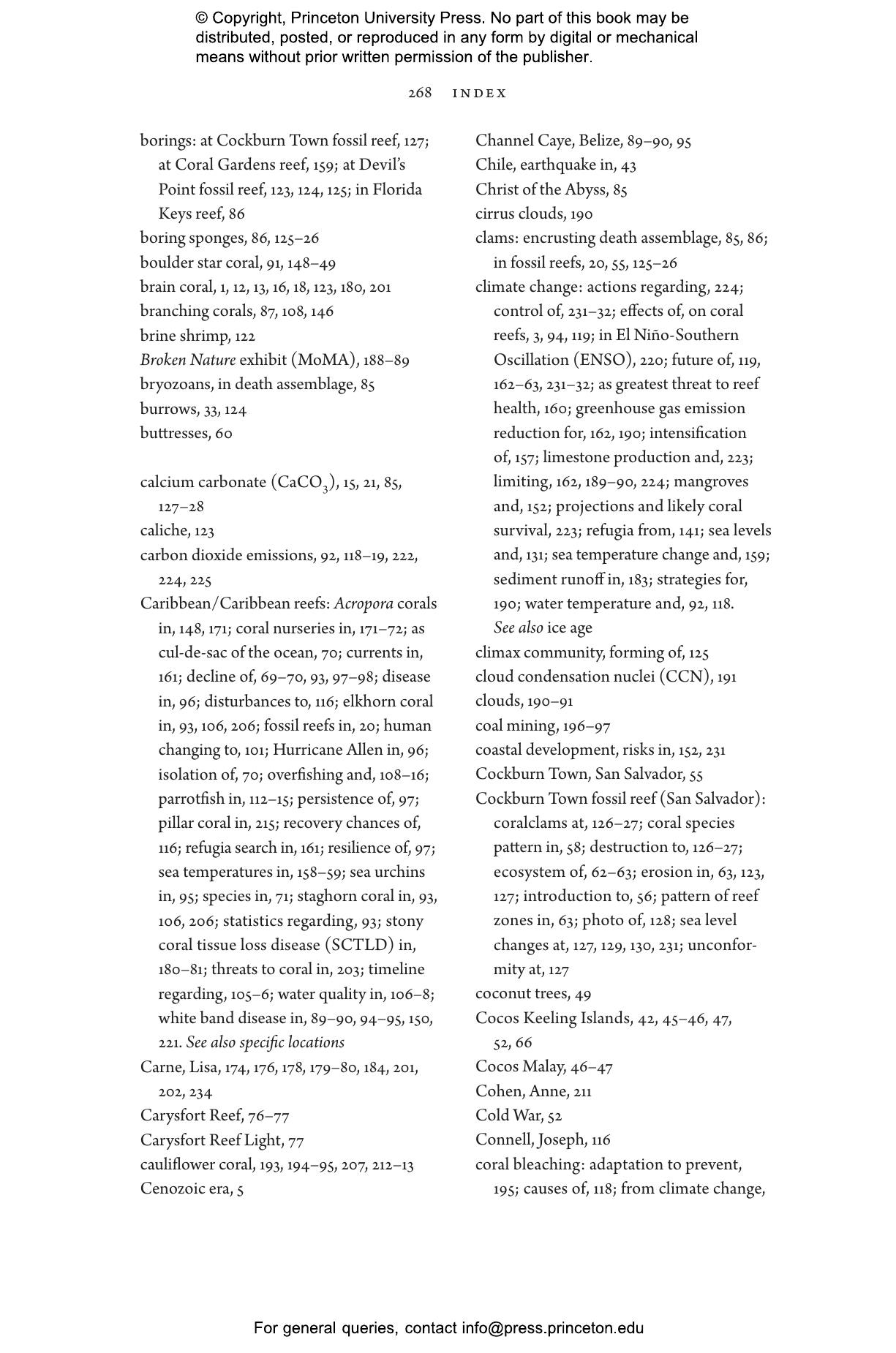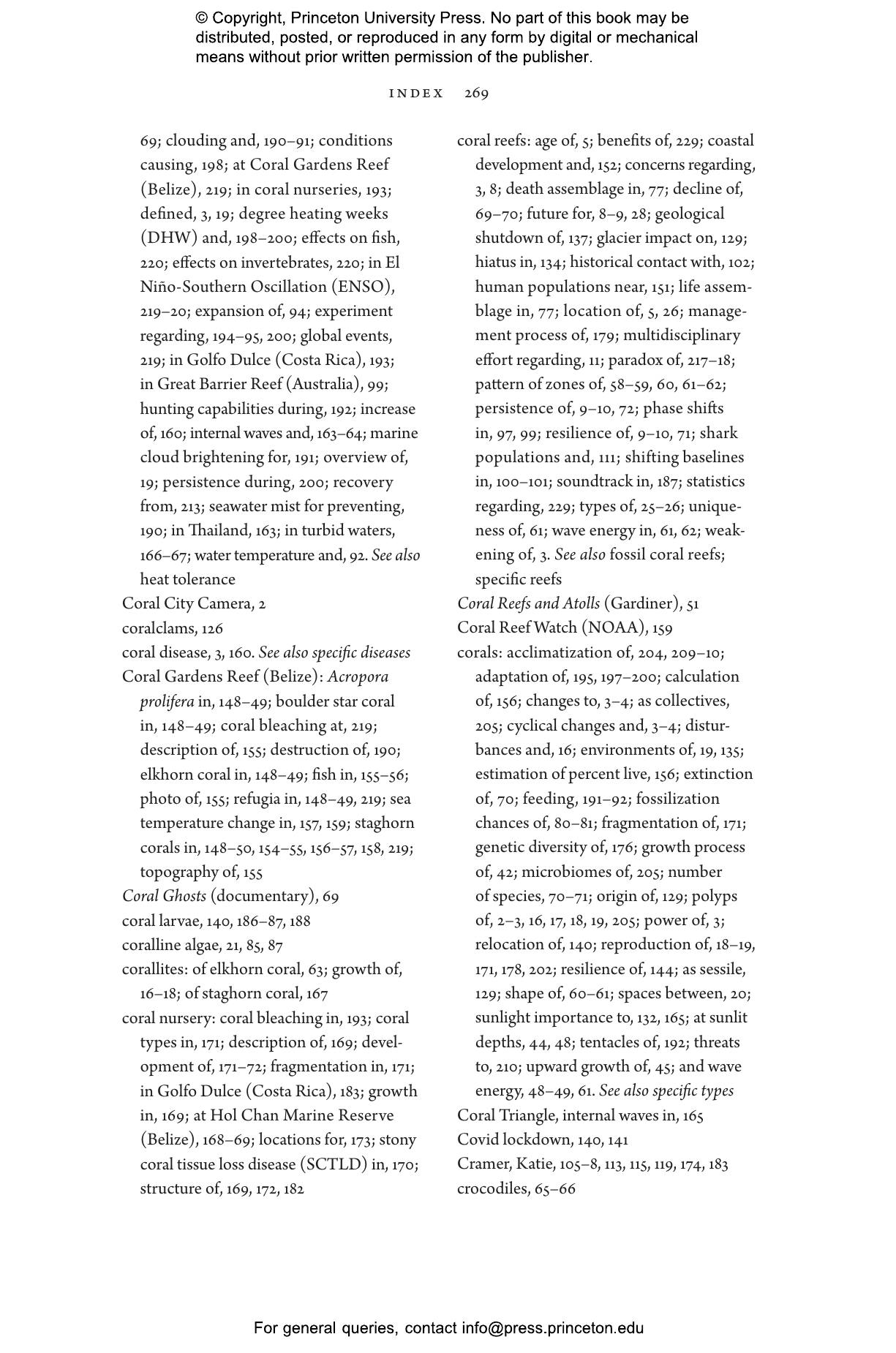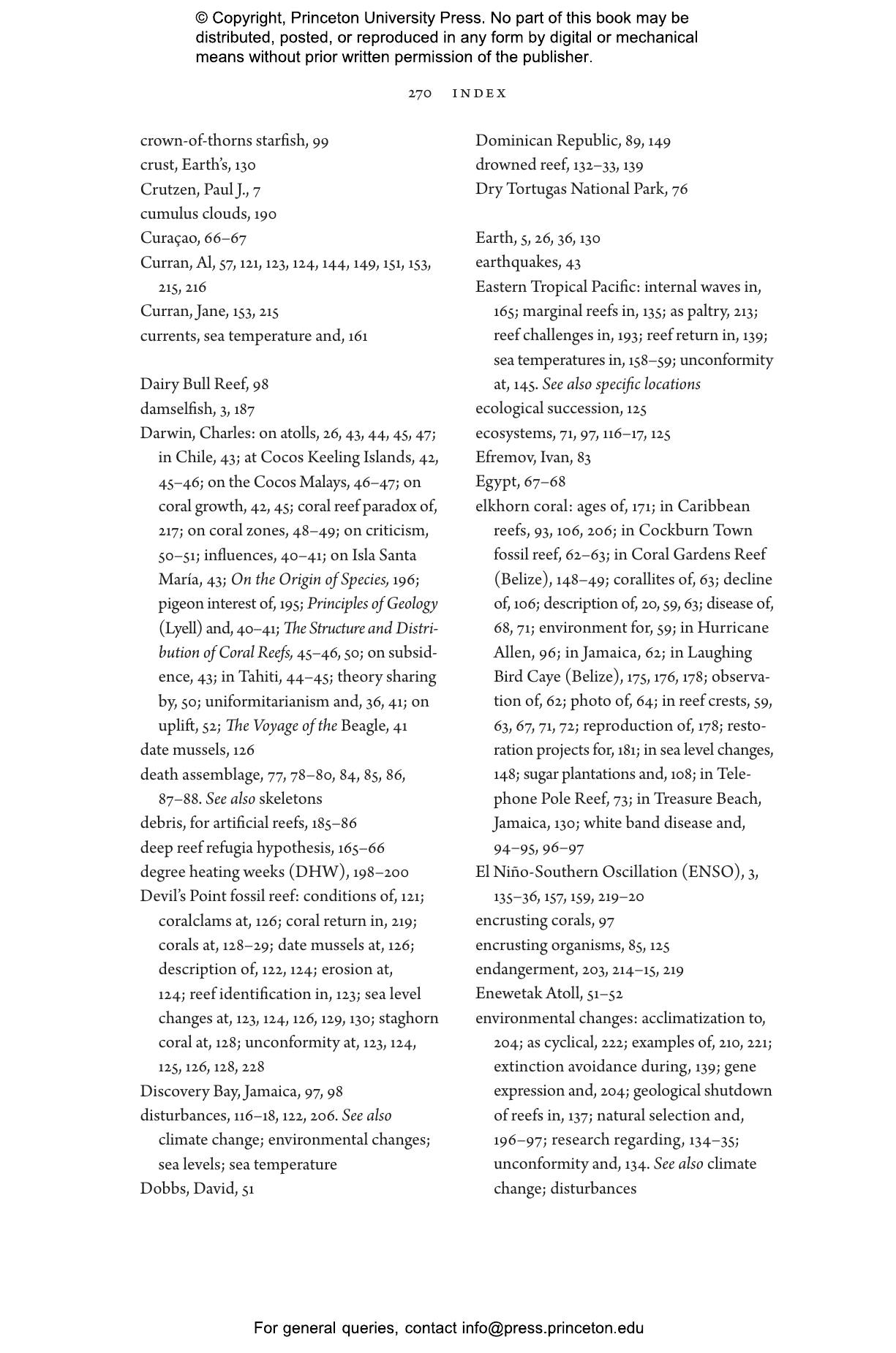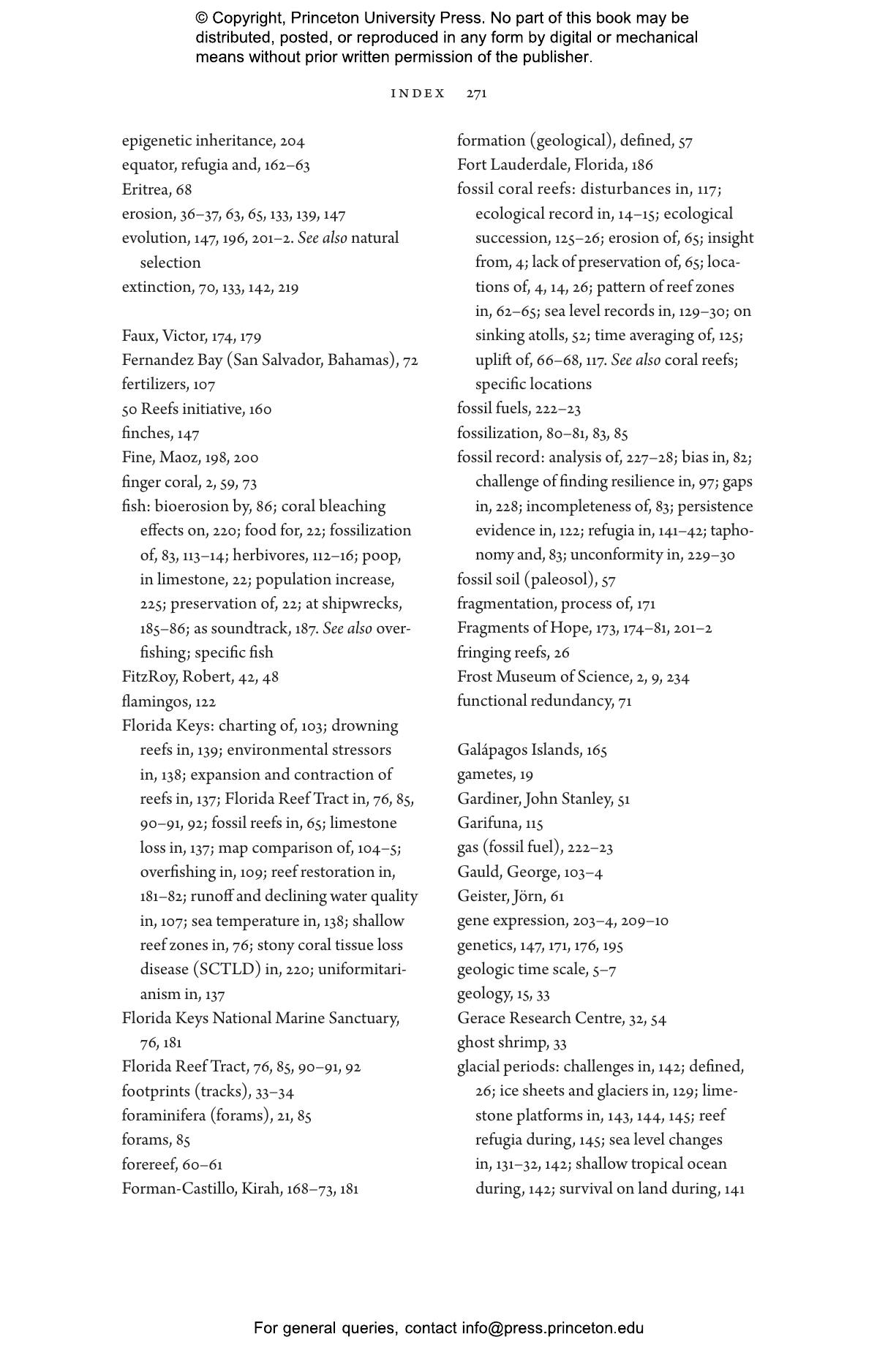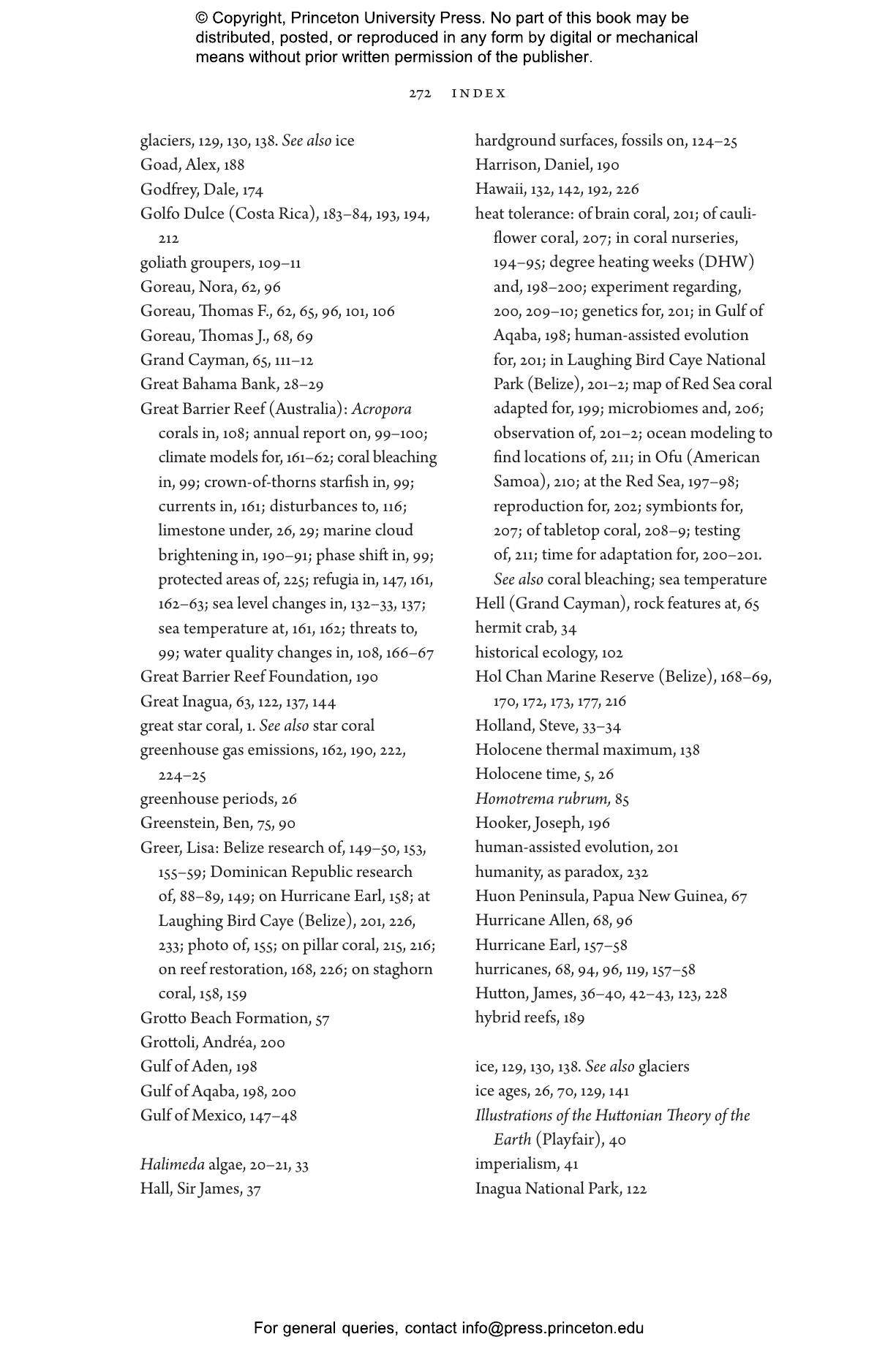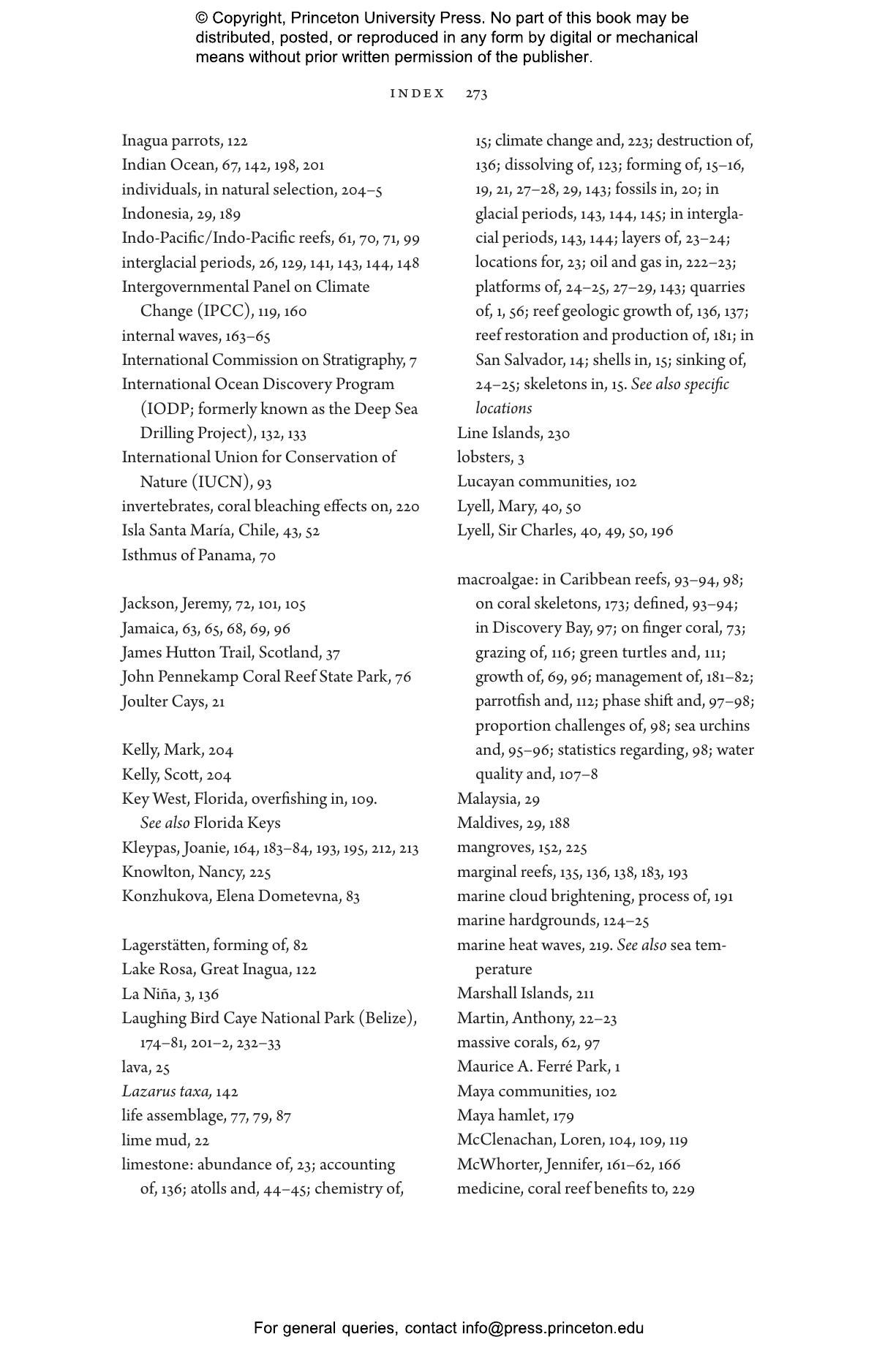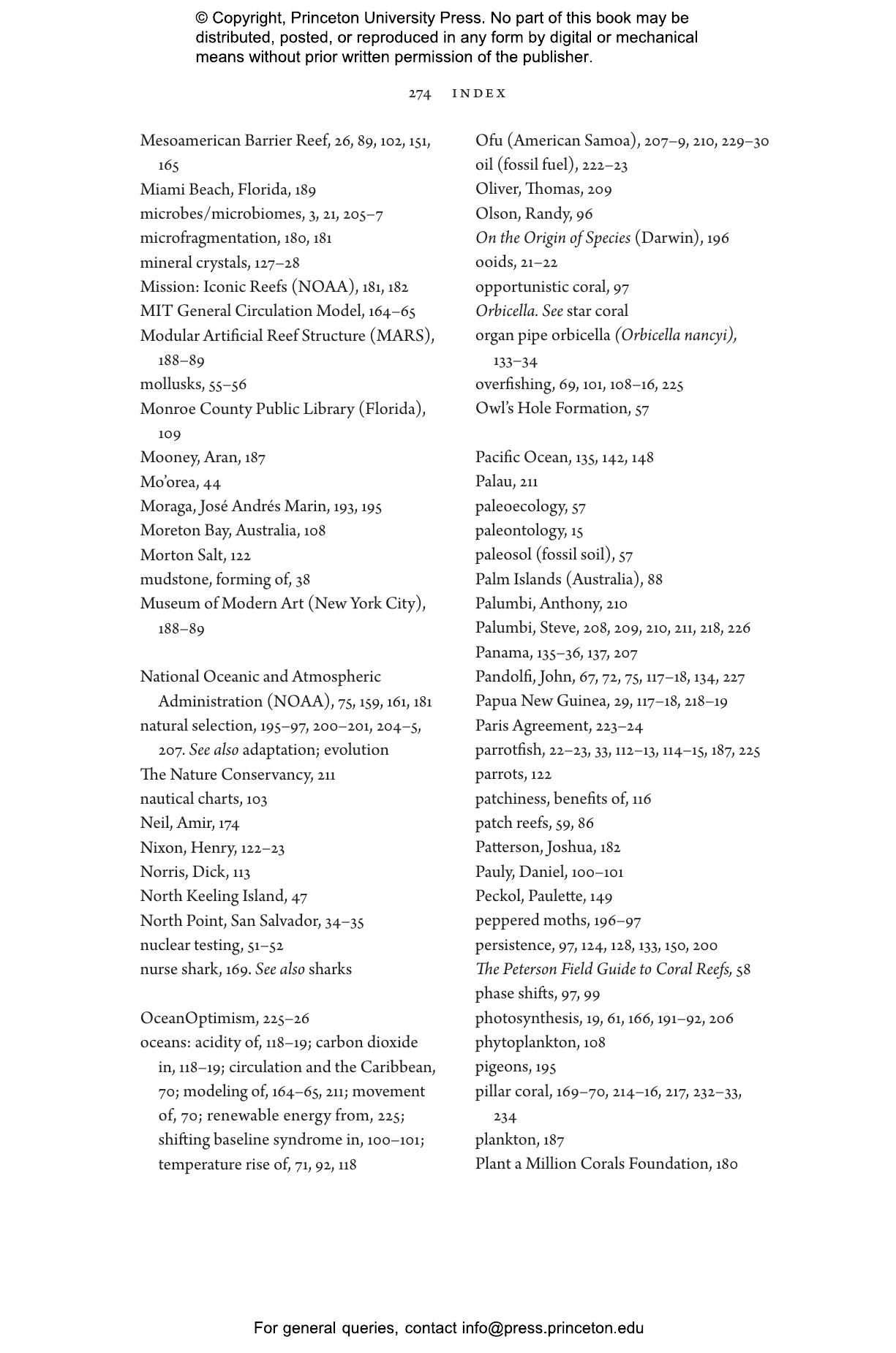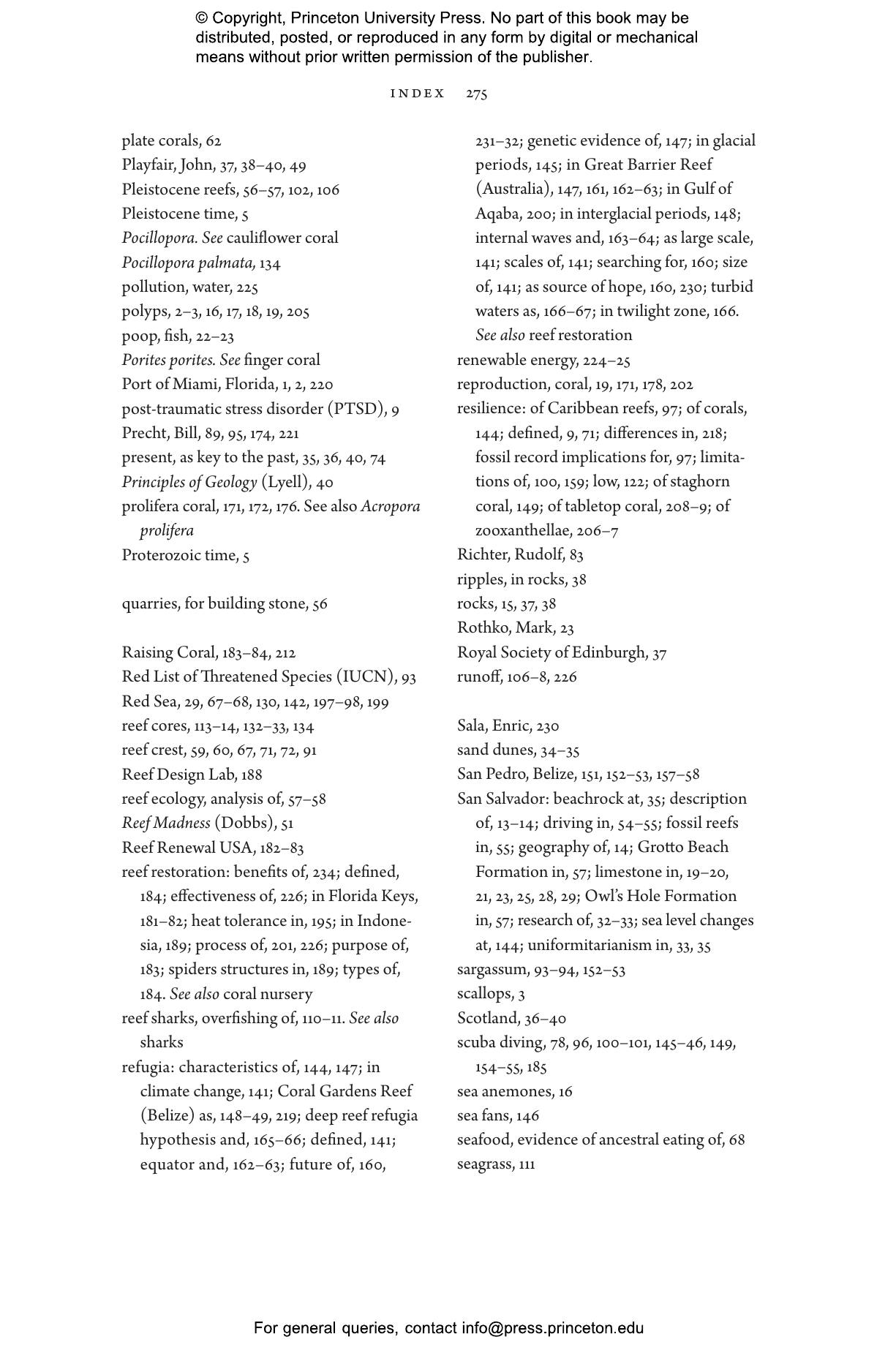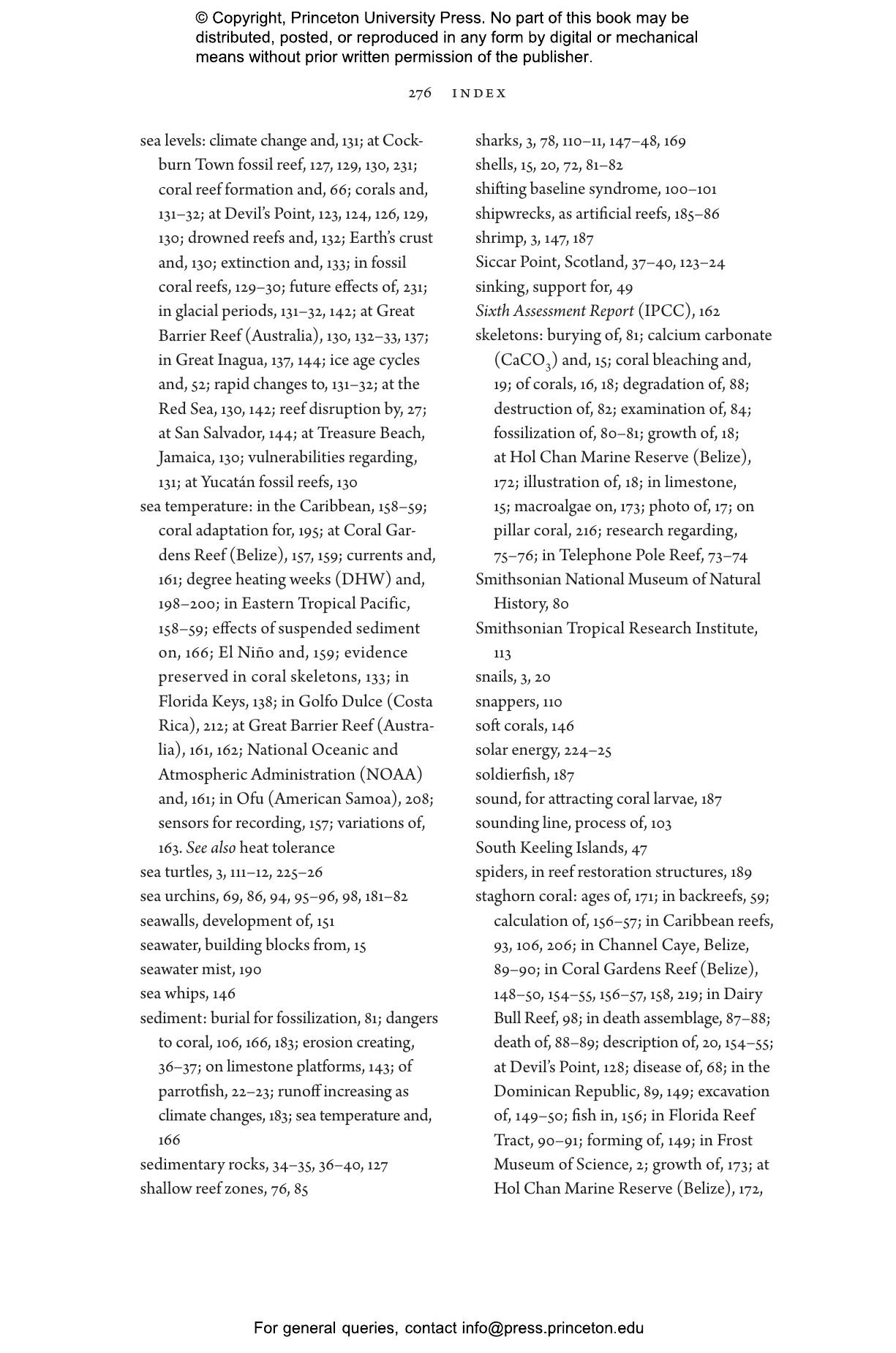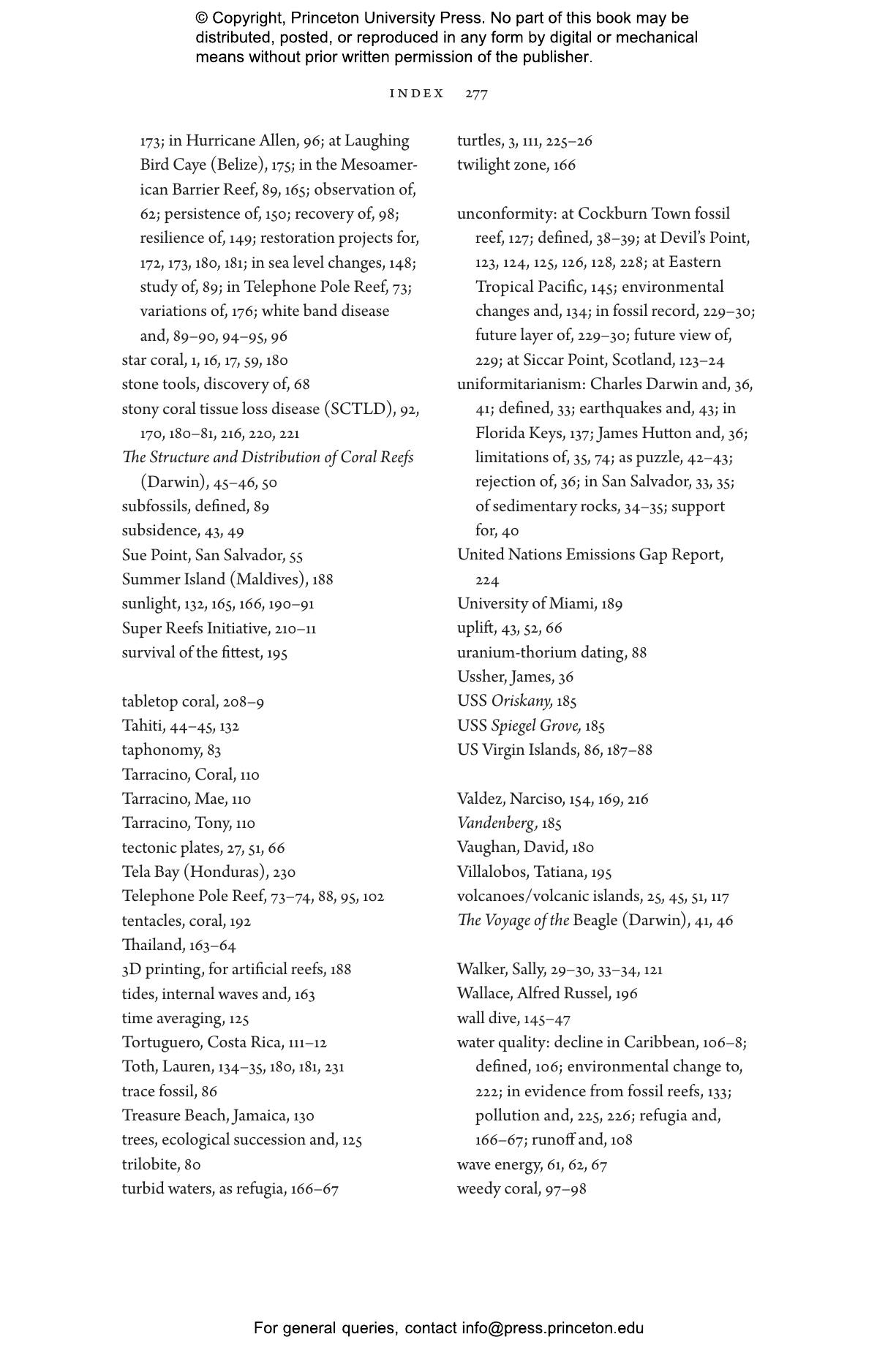With rising global temperatures, pollution, overfishing, ocean acidification, and other problems caused by humans, there’s no question that today’s coral reefs are in trouble. As predictions about the future of these ecosystems grow increasingly dire, scientists are looking in an unlikely place for new ways to save corals: the past. The reefs of yesteryear faced challenges too, from changing sea level to temperature shifts, and understanding how they survived and when they faltered can help guide our efforts to help ensure a future for reefs.
Lisa Gardiner weaves together the latest cutting-edge science with stories of her expeditions to tropical locales to show how fossils and other reef remains offer tantalizing glimpses of how corals persisted through time, and how this knowledge can guide our efforts to ensure a future for these remarkable organisms. Gardiner takes readers on an excursion into “the shallow end of deep time”—when marine life was much like today’s yet unaffected by human influence—to explore the cities of fossilized limestone left behind by corals and other reef life millennia ago. The changes in reefs today are unlike anything ever seen before, but the fossil record offers hope that the coral reefs of tomorrow can weather the environmental challenges that lie ahead.
A breathtaking journey of scientific discovery, Reefs of Time reveals how lessons from the past can help us to chart a path forward for coral reefs struggling for survival in an age of climate crisis and mass extinction.
Lisa S. Gardiner is a science writer, geoscientist, and educator. She is the author of Tales from an Uncertain World: What Other Assorted Disasters Can Teach Us about Climate Change. Her writing has appeared in leading publications such as the Atlantic, Hakai Magazine, and Scientific American.
"In an era of widespread coral bleaching and worldwide loss of coral reefs, Gardiner's lessons from the past may help save corals for the future."—Nancy Bent, Booklist
"A standout contribution to marine literature, offering clarity and hope in the face of one of our era’s most pressing environmental challenges."—Sevenseas Media
"Lisa S. Gardiner, in fluid conversational prose, friendly and engaging, examines the prehuman fossil record and reveals what once was and may never be again. . . . This is an important book with a significant message, and dire warnings for a world about to change drastically in the coming decades. Lisa S. Gardiner has done an admirable job in alerting us to impending disaster."—David Gascoigne, Travels with Birds
“A deep dive into tiny lives that can build communities large enough to see from space, Gardiner’s coral odyssey is a delight. She deftly weaves together science, history, and poetic description into an enthusiastic life story of coral and its reverberating influence on life through the ages.”—Riley Black, author of When the Earth Was Green and The Last Days of the Dinosaurs
“Like a detective novel for the reefs, Lisa Gardiner’s book offers a fast-paced and fluid account of both ancient and modern corals, exposing clues and traces that reveal our oceans’ dynamic history. Reefs of Time shares an elegant, urgent, and ultimately hopeful message about why our past matters so much to our future.”—Juli Berwald, author of Spineless and Life on the Rocks
“Lisa Gardiner skillfully weaves together geography, history, biology, geology, anthropology, and conservation science into an engaging account of one of planet Earth’s most gorgeous—and imperiled—habitats.”—Jonathan Balcombe, author of What a Fish Knows and Super Fly
“Of all endangered ecosystems, few are as important as coral reefs. But for us to preserve these marine environments, we first must understand their prehuman histories. Filled with compelling stories and marvelous imagery, Reefs of Time shows how reefs of the past can help us better ensure the recovery of reefs today and gives us hope that these precious environments will persist well into the future.”—Anthony J. Martin, author of The Evolution Underground and Dinosaurs Without Bones
This publication has been produced to meet accepted Accessibility standards and contains various accessibility features including concise image descriptions, a table of contents, a page list to navigate to pages corresponding to the print source version, and elements such as headings for structured navigation. Appearance of the text and page layout can be modified according to the capabilities of the reading system.
Accessibility Features
-
WCAG v2.2
-
WCAG level AA
-
Table of contents navigation
-
Single logical reading order
-
Short alternative textual descriptions
-
Print-equivalent page numbering
-
Landmark navigation
-
Index navigation
-
Epub Accessibility Specification 1.1
-
ARIA roles provided
-
All non-decorative content supports reading without sight
-
No known hazards or warnings


